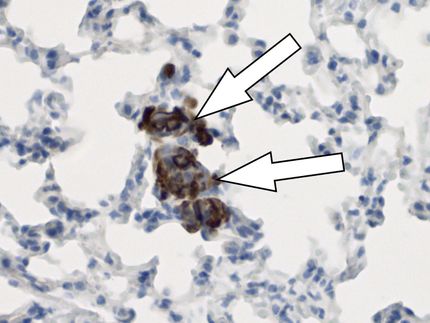Anti-stress hormone may provide indication of breast cancer risk
A new study from Lund University in Sweden shows that women with low levels of an anti-stress hormone have an increased risk of getting breast cancer. The study is the first of its kind on humans and confirms previous similar observations from animal experiments.
The recent findings on a potential new marker for the risk of developing breast cancer are presented in the Journal of Clinical Oncology. The study focused on a hormone which circulates freely in the blood, enkephalin, with pain- and anxiety-reducing properties. Enkephalin also reinforces the immune system by directly affecting immune cells.
"This is the first time the role of enkephalin in breast cancer has been studied in humans, and the results were surprisingly clear. Among women with the lowest levels of the hormone, the risk of breast cancer was more than three times that of the women with the highest levels of the hormone. This is one of the strongest correlations between cancer risk and a freely circulating biomarker ever described", said Olle Melander and Mattias Belting, both professors at Lund University and consultant physicians at Skåne University Hospital.
The findings were possible thanks to a broad approach combining the latest knowledge within cancer and cardiovascular research at Lund University; the study was based on blood samples taken from just over 1 900 women in Malmö. The women were followed up with regard to breast cancer for an average period of 15 years.
The results were adjusted for age, menopause, hormonal treatment, smoking and other factors which can affect the risk of getting breast cancer.
The current study confirms a statistical correlation between low enkephalin concentrations in the blood and increased risk of breast cancer, and it remains to be seen whether there is a causal relation showing that a low level of the hormone directly affects tumour development. The researchers also point out that geographical location and age, in spite of the adjustments in the study, may be significant. The average age of the women studied was 57.
On the other hand, the study's results are backed up by a subsequent control study of a group of 1 500 women with a marginally higher average age. In this group, the link between low levels of the hormone and breast cancer was even stronger. Animal studies by other researchers also gave similar indications. These studies established that enkephalin can reinforce the activity of the immune system against cancer cells, as well as having a direct tumour-inhibiting effect.
The researchers at Lund University hope that, after further studies, the results will facilitate prevention and early detection of breast cancer. For those with an increased risk of breast cancer, potential preventive treatments could take the form of lifestyle interventions to reduce stress and new drugs. The findings fit well with the development towards individualised risk assessment and treatment, on the basis of each woman's needs.
"Our immediate plan is to investigate how to affect the level of enkephalin in healthy individuals. We will do this primarily in a study with a smaller number of women. We are also interested in the hormone's role in other cancers", said Olle Melander and Mattias Belting.
Other news from the department science

Get the life science industry in your inbox
By submitting this form you agree that LUMITOS AG will send you the newsletter(s) selected above by email. Your data will not be passed on to third parties. Your data will be stored and processed in accordance with our data protection regulations. LUMITOS may contact you by email for the purpose of advertising or market and opinion surveys. You can revoke your consent at any time without giving reasons to LUMITOS AG, Ernst-Augustin-Str. 2, 12489 Berlin, Germany or by e-mail at revoke@lumitos.com with effect for the future. In addition, each email contains a link to unsubscribe from the corresponding newsletter.





















































